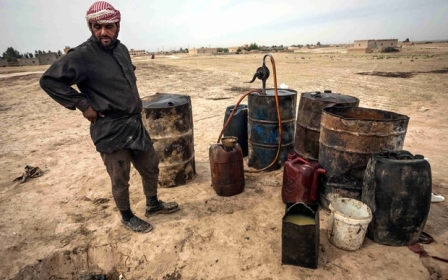Syria issues first banknote with image of Bashar al-Assad

Syria's central bank has for the first time issued a banknote featuring Bashar al-Assad, as the ongoing civil war continues to ravage the Syrian economy.
Though only worth $4, the new 2,000-pound is the highest denomination ever issued by the Syrian government.
It went into circulation in several regions including the capital Damascus on Sunday, according to Central Bank governor Duraid Dergham.
"Given the worn nature of the bills currently in circulation, the central bank saw that it was the appropriate time to release the 2,000 Syrian pound note," Dergham said, quoted by Syrian state news agency SANA.
The bill features a portrait of the president on one side and the inside of Syria's parliament on the other.
The value of the Syrian pound has plummeted over the course of the country's war, depreciating by around 90 percent against the US dollar since the conflict erupted in March 2011.
The largest bill in circulation had been the 1,000 Syrian pound note, which featured Syria's former president and Assad's late father, Hafez.
Economic crisis
Reactions to the bill have ranged from expressions of support to concerns that it could spark further inflation.
But Dergham sought to reassure the public. "There is no need to panic over this matter," he said.
Before the note was issued, Syria's currency only featured images of historical monuments and the picture of Hafez al-Assad.
Earlier this year, the Syrian energy minister said that the war had impacted every part of the economy.
"The war has reached all economic resources, but has most systemically hit the petrol sector," said Ali Ghanem.
"We used to produce and export petrol, but today we import all our needs," he said.
Crude oil production dropped 98 percent between 2010 and 2017 from 385,000 barrels per day to just 8,000, Ghanem added.
The government has lost control of many of the country's most important oil and gas fields to rebels, the Islamic State (IS) group or Kurdish fighters.
Stay informed with MEE's newsletters
Sign up to get the latest alerts, insights and analysis, starting with Turkey Unpacked
Middle East Eye delivers independent and unrivalled coverage and analysis of the Middle East, North Africa and beyond. To learn more about republishing this content and the associated fees, please fill out this form. More about MEE can be found here.




